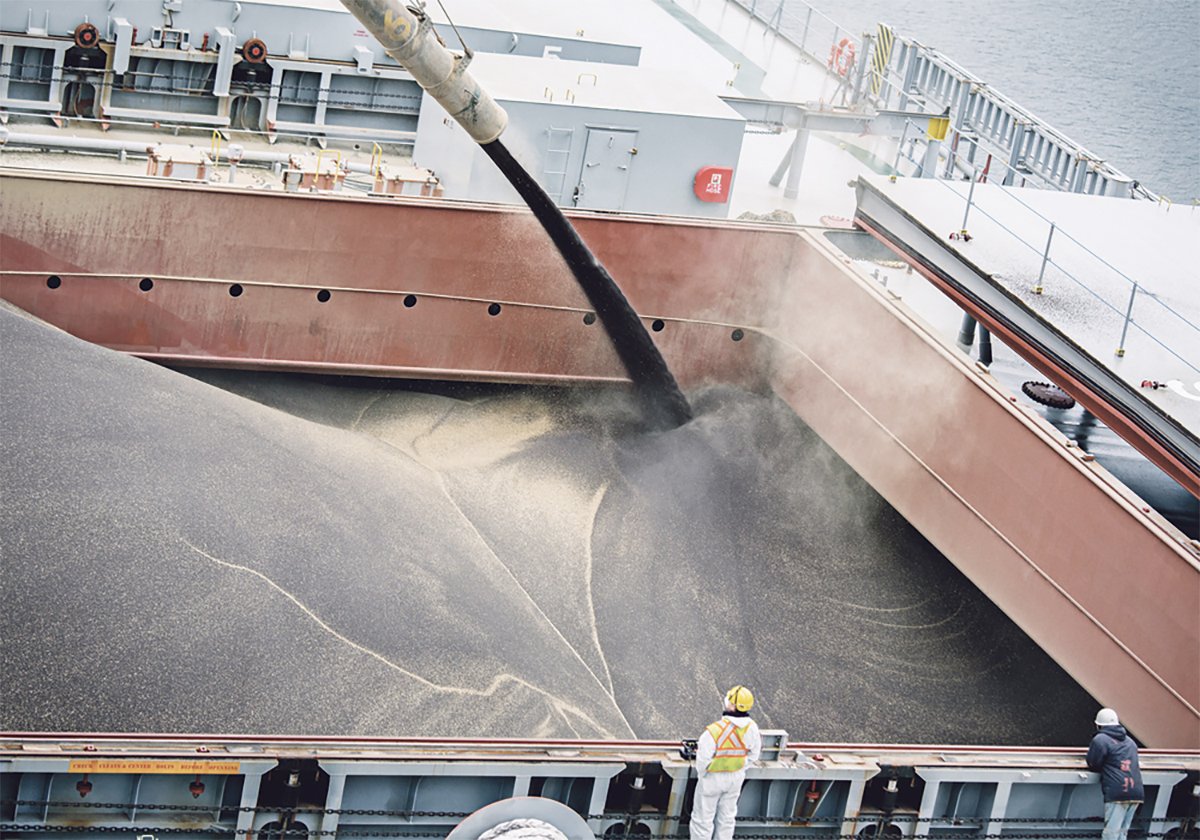WINNIPEG – There’s one thing that Canadian farmers and all Canadians need to know, says Stephen Heckbert.
South of the border, no one is talking about Canada.
Follow all our tariff coverage here
Read Also

Exports off to a slow start after last year’s torrid pace
Canadian grain, oilseed and pulse exports are off to a slow start, but there are some bright spots, according to the Canadian Grain Commission’s most recent weekly export data report.
“They’re not thinking about us. We have to get over the idea that there’s any American, on any given day, who is giving a thought to (Canada),” said Heckbert, executive director of the Canadian Pork Council.
“Nobody is thinking about Canada, unless (we’re) there telling them why to remember Canada.”
To remind Americans that Canada does matter, Heckbert and a group of ag industry leaders travelled to Washington, D.C. in the second week of April. Representatives of the canola, pork, cereals, sugar and other Canadian ag sectors met with dozens of politicians and political staffers on Capitol Hill to make the case for free and fair trade.
The trip came at a time of trade policy chaos in the U.S. as President Donald Trump has vowed to re-balance U.S. trade with the world by restricting imports with punishing tariffs of 25 to 145 per cent.
But Trump’s position and the country’s trade policy changes day-by-day, or even hour-by-hour, so ‘uncertainty’ has become the most popular word of 2025.
The Canadian delegation was busy in Washington, as they held 50 meetings over a couple of days.
Heckbert has no delusions that the meetings will drastically change Canada’s trading relationship with the U.S.
But such conversations are critical to maintain Canada’s relevance in Washington.
“One of the things I think we’ve all learned, is we neglect our U.S. relationships at our peril,” Heckbert said.
“That’s a mistake we’ve (made) politically. And certainly a mistake we’ve made economically.”
A large part of maintaining those relationships is talking to people from both political parties. The agri-food delegation spoke with many Republicans, including some who have mixed feelings about tariffs.
“From meetings with Republican representatives and their staffers, I was left with the strong impression that they support the president,” said Michael Harvey, executive director of the Canadian Agri-Food Trade Alliance, which organized the Washington trip.
“But (they) aren’t necessarily totally onboard with the (trade) strategy.”
Harvey’s comments are similar to Greg Valliere, the chief U.S. policy strategist for AGF Investments, who has 40 years of experience in Washington.
Republican members of Congress are worried that Trump’s tariffs will damage the U.S. economy and their chances of re-election.
“An awful lot of Republicans on Capitol Hill have gone to the White House and said this is going to kill us… in the (mid-term) elections of November 2026,” Valliere said.
These concerns, from Republicans, could convince Trump to back away from tariffs.
Or not.
Heckbert leans toward the ‘not’ camp.
Farmers and leaders in Canada’s agri-food industry shouldn’t expect the trade and tariff mess to go away.
“We have to accept there is going to be ongoing challenges,” Heckbert said.
“Until (Trump) sees a broad swath of his base of support disappear… because of increased prices or increased inability to do things… it’s going to be a tough ride.”
Contact robert.arnason@producer.com


















